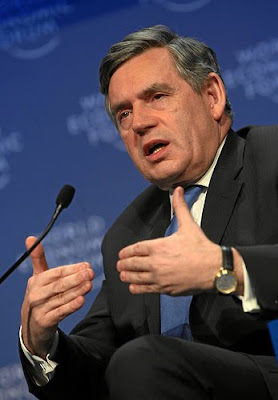Murdoch owns part of Sky News Australia, so the question of bias may be raised. However it could be argued that the interviewer, David Sheers, is brave to press critical questions such as whether Fox News is truly fair and balanced. Behind Murdoch is a wall of newspapers. happy coincidence or carefully choreographed statement?
- Websites that are making a couple of million are not making 'serious money', Murdoch is clearly operating and thinking in terms of capital that eclipses most other organisations.
- Accessing News Corp's content will be cheaper than buying a newspaper, the savings being made from printing and distribution costs. However, it's not free and consumers used to free content may resent even the smallest of fees - especially if there's still free alternatives from other news providers. It may be dependent on whether other media providers follow suite or not.
- The hard copy newspaper will disappear, but not for 20 years. We know this will happen eventually but it's interesting to see that those at the top believe it too and are preparing for it.
- It's a generational thing, people under 30 just don't buy newspapers. We've had this discussion with our lecturer here at Winchester university, there has been a complete shift in culture, possibly propagated by the rise of the internet.
- "The BBC is a scandal", he believes they can use their £4bn+ budget to force their way into new mediums and opportunities where commercial enterprises just can't compete. Mr Murdoch appears frustrated that he BBC is able to be a global leader with new products like 'iplayer' and they don't have to deal with advertising and revenue in the way he does.
- He appears to support the 'three strikes and out' method of dealing with file sharers that proves to be controversial and unpopular if imposed in the UK.
- Murdoch is very critical of the current American administration, perhaps he is unable to work with them in the same way as he has been able to before.

- Every world leader is afraid of the press. It's hard to argue with the point made here when we know how long our politicians spend wooing news editors in the lead up to elections. And we know the power of the press, huge damage has been done to Labour and Gordon Brown now Murdoch's UK papers have switched allegiance and support Cameron. The viscous front page attacks from the Sun about Brown's hand written letter to the mother of a dead soldier being a prime and current example
- According to this interview, Murdoch regrets that the UK papers have turned against Gordon Brown but feels that it was the right decision. I believe he's seriously downplaying his own hand in the editorial process here and that it would ultimately have been his decision, his call to turn against Labour.
By charging for content that internet users have come to expect will be free, Murdoch is taking a huge gamble and one that I'm doubtful will pay off in the way he hopes. My generation doesn't buy papers, a point he concedes - we get our news for free. Why would we start paying now, even if the medium is one we're more familiar with? Content such as the embedded video from youtube at the beginning of this post is exactly the kind of material he seems to resent being freely available. But perhaps internet culture has come to far to do a u-turn now. If Rupert Murdoch is saying this is the way forward, why does it feel so much like it would be taking a step backwards?








